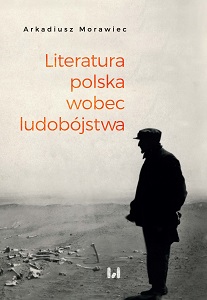Literatura polska wobec ludobójstwa. Rekonensans
Polish Literature towards Genocide. Reconnaissance
Author(s): Arkadiusz Morawiec
Subject(s): History, Language and Literature Studies, Jewish studies, Ethnohistory, Polish Literature, History of Antisemitism
Published by: Wydawnictwo Uniwersytetu Łódzkiego
Keywords: genocide;Polish literature;extermination of Jews;Holocaust;Second World War;Armenians;Gypsies;Srebrenica
Summary/Abstract: This book aims to explore the Polish literature on genocide. The author attempts to investigate a field which is said to have been under discussed in the Polish literary studies. The book is an attempt to recognise and demarcate a research area which has so far been either practically ignored or perceived fragmentarily by Polish literary studies. Crucial and recognised thematic areas within the 20th and 21st century Polish literature are: the literature of the Holocaust, regarding the extermination of Jews, and also the literature of the Second World War and German occupation, partially related to the issue of Shoah and also to the extermination of the Polish in concentration camps, and during the Katyn massacre and the Warsaw Uprising. There is already a large number of papers and studies that focus on various aspects of these research areas, including certain achievements in the field. On the other hand, however, there is still lack of thought and reflection upon the literature triggered by other acts of genocide and mass murder. No such reflection has been taken up yet, nor have there been any attempts to stipulate whether within the Polish literature there exist any works devoted to massacres other than the annihilation of Jews and the extermination of the Polish, i.e. felonies perpetrated by groups other than the Nazis (Germans) and the Communists (Soviets).This book constitutes an attempt to partially fill this gap. And in terms of the manner in which it relates to literature that reacts to genocide other than the Shoah, it ought to be perceived as a reconnaissance. Such an ‘exploratory’ nature can be attributed to the chapters devoted to literary echoes of the massacre of Armenians by the Turkish, Nazi endeavours to annihilate the mentally and physically handicapped and Gypsies, as well as the Srebrenica massacre committed by the Serbs. On the other hand, the chapters of the book devoted to the literature of the Holocaust ought to be perceived as an attempt to enrich and expand the state of research, and in some cases – as a correction of the existing conclusions.
- E-ISBN-13: 978-83-8142-005-1
- Print-ISBN-13: 978-83-8142-003-7
- Page Count: 416
- Publication Year: 2018
- Language: Polish
- Table of Content
- Introduction
- eBook-PDF

